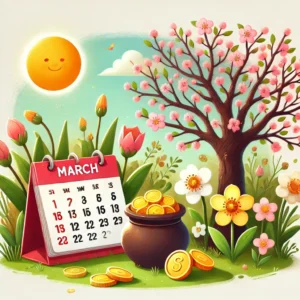Through history, we have grown accustomed to view strength and size as some of the most important advantages in life. We have heard the bigger, the better repeated as an unquestioned mantra of power. Gladwell asks us to reconsider life to see what we can learn from the challenges we face.
The book is broken into three parts. I will offer what I find to be the key takeaway from each.

Table of Contents
Specs
- Author: Malcolm Gladwell
- Pages: 295
- Reading Level: Beginner
- Rating: A+
- First Published: 2013
- Similar Read: Outliers by Malcolm Gladwell
Part One: The Advantages of Disadvantages (and the Disadvantages of Advantages)
Given the book’s title, it should come as no surprise that the central theme of David and Goliath is focused around what constitutes an advantage and why sometimes we, as a species, often grossly mistake what may actually be a disadvantage. For example, while Goliath’s size means he would be a formidable foe in hand-to-hand combat, it also meant he was slow. Further, he had a condition which included poor eyesight and as such, from a distance, he was a sitting duck for the mobile range-fighter that was David.
Part One also looks at a youth women’s basketball team composed of under-skilled girls who, using the full court press, were able to outmatch their apparently-superior foes. The strategy was physically draining as it required constant action and defense of the entire basketball court. Every second of every possession was a constant struggle. This section was particularly instructive for me.
The girls did defeat more highly skilled opponents through use of an unconventional tactic. However, the genius was not the fact that such a tactic was thought of and employed. The magic was that the girls actually had the guts to carry out such a strategy despite facing ridicule from onlookers and persisted nevertheless.
To see the hard road is one thing. To persist requires something more.
As an avid boxing fan, I see this dilemma routinely in the heavyweight division where opponents are often dozens of pounds apart in weight as the division starts anywhere +200lbs. Sometimes, a smaller fighter tries to fight conventionally against a much larger opponent and is soundly beaten. Rather than try something crafty such as boxing and moving and turning it into what is known as a “boring fight”, the boxer gets proud and loses quietly. On the other hand, sometimes a boxer comes along with the guts to draw things out and use their speed to their advantage in a game of cat-and-mouse to win the fight by any means necessary. This is what is required of an underdog who wants to upset the applecart.
In life, it is important to recognize what our advantages and disadvantages are. Sometimes, what others perceive as our weakness–being smaller, for instance–may actually come with its own set of advantages such as elusiveness, speed, and so on. Rather than write ourselves off for what we don’t have, it is important to recognize what we do bring to the table and focus simply on finding a way to win against the odds.
Part Two: The Theory of Desirable Difficulty
The section of the book asks the reader to rethink difficult experiences and conditions such as dyslexia or the loss of a parent at an early age. While these are not things most would wish on anyone else or even be thankful about having gone through themselves, Gladwell demonstrates that they are not necessarily all negative and can even lead to certain advantages.
For instance, in one story he shows how a dyslexic who struggled to read overcompensated (described as compensation learning) by becoming an exceptional listener which actually lead him to become an incredible trial lawyer.
While Gladwell offers a number of poignant examples to make his point, I believe the value is in asking ourselves what desirable difficulties we may have endured and turned into a positive. I have always been fascinated by this very phenomenon.
Why is it that some people can take an early childhood experience such as an abusive parent and turn to alcohol and succumb to depression while another sibling instead uses it as fuel to live a successful, meaningful adult life? Why are some people destroyed by the same experiences that empower others?
Victor Frankl endured the worst of the Holocaust and emerged on the other side with a new appreciation for life while other survivors were left emotionally destitute. He once said:
What is to give light must endure burning.
To get the most out of ourselves, I believe each of us have to face some trials and come out on the other side. Overcoming obstacles is what gives us the ability to trust in ourselves when the going gets tough. The only way to gain experience life is to see some tough times and grind them out.
My favourite line of the book comes in this section. On page 149, Gladwell states:
Courage is not something that you already have that makes you brave when the tough times start. Courage is what you earn when you’ve been through the tough times and you discover they aren’t so tough after all.
This isn’t to say we should be out there looking for tough times. There’s really no need to; tough times will find all of us over the course of a healthy life. There isn’t a person out there who has been able to skip through life without facing some dark times. What Gladwell shows us is that the tough times aren’t to be feared. They are to be faced and, in the act of facing our problems we come to realize they are absolutely surmountable. The person that emerges on the other side is in fact stronger than ever before.
Part Three: The Limits of Power
Using historical accounts of protracted conflicts such as Northern Ireland’s Protestant vs. Catholic battles and the Vietnam War, Gladwell shows us that despite overwhelming force, a weaker force is not so easily forced into submission. This section expands on what we learned all the way back with Sun Tzu in The Art of War, which is to say that anyone who takes on an opponent they do not truly understand can be expected to have poor results.
The United States was ultimately unable to break their much “weaker” foe, despite outgunning the Viet Cong in each of the “Three M’s” of Men, Money, and Materiel. By entering a conflict with the thought that sheer might would win the day, the U.S. learned that bombing people in their homes might actually lead those who survive to toughen up and become further entrenched.
While hard-nosed authoritarians will ascribe to the theory that the ends justify the means, Gladwell shows us that the means will in fact impact the ends achieved. In other words, there is seldom a force so powerful that they may rule with an iron fist and also gain total submission by those they dominate. History is littered with examples of assassinated emperors and kings and rulers of all sorts. Anyone who carries on without considering the needs and desires of those over whom they have power are doomed to some degree of failure. Power relations operate on a two-way street and must be respected for best results.
Conclusion
To find a book comparable in scope to David and Goliath, I could really only think of Outliers by Gladwell himself. This is no coincidence; Gladwell is unparalleled in his ability to cover a huge range of material and succinctly bring it together by finding the nugget of wisdom that is useful to make his points.
The relaxed prose leads to a very comfortable feel as a reader and really kept each page turning easily as I engulfed the book in just three reading sessions. This book is truly a must-read for anyone looking to broaden their perspective.
I would not go so far as to say this book suggests that indeed the meek will inherit the earth, but I would say that we should most definitely reconsider whether the supposed underdog is really at a disadvantage. Rather, underdogs can actually hold an important upper hand if they are able to recognize their situation and find a way to benefit.
Thank you for reading.
– Ryan
What have you taken away from the lessons of this book?
The page contains an Amazon Affiliate link.


